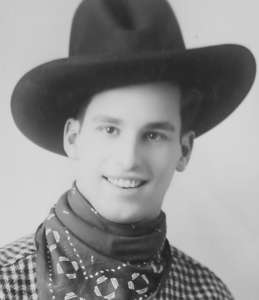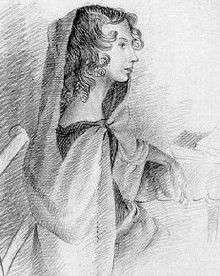REVIEW POTPOURRI – Singer: Hal Lone Pine; TV: Have Gun Will Travel; Movie: Amadeus; Author: Anne Bronte
Harold Breau
by Peter Cates
Harold John Breau
Born in Pea Cove, Maine, Harold John Breau (1916-1977), better known as Hal Lone Pine, was a popular country singer for almost 40 years, especially throughout Maine, New Brunswick and the Canadian prairies, and recorded several songs for RCA Victor during the early 1950s with his wife Betty Cody (1921-2014) . For several years, the couple was a regular on radio and TV in Winnipeg, Manitoba.
After the couple divorced in 1960, Lone Pine formed a partnership with Winnipeg singer Jeannie Ward; the two recorded an LP, Hymns and Heart Songs, in 1964 for the Toronto label Arc. As an example of the sacred music genre, the album is quite good and has a mix of such familiar hymns as Beyond the Sunset and Abide with Me, and some lesser known hymns.
Lone Pine and Betty had two sons who became successful jazz guitarists – Lenny Breau (1941-1984) and younger brother Denny, who is still performing in Maine venues.
Have Gun Will Travel
Richard Boone
I have started to watch episodes of Have Gun Will Travel, a popular western TV series that ran from 1957 to 1963. Richard Boone (1917 starred as Paladin, a man who was quick on the draw yet would not use his revolver for any gun-slinging purposes. He would simply have it handy if needed on his various good Samaritan trips.
Paladin is wealthy and lives at a luxury San Francisco hotel. He is also well read – in one episode he quotes the naturalist of ancient Rome, Pliny.
Guest stars have included Hawaii 5-O’s Jack Lord, Charles Bronson of Death Wish fame, and Claude Akins and Leo Gordon (both of whom portrayed cold-blooded villains in movies and television on numerous occasions) in somewhat ominous character roles, a couple of whom change for the better by the end of the episode.
Highly recommended for unpredictable storylines and morally uplifting situations.
Amadeus
The 1985 movie classic Amadeus centered on the relationship between the great composer Mozart and the not so great composer Salieri. One particularly memorable scene, and one which might not be true, has Mozart on his death bed, singing notes for his final masterpiece, the Requiem, as Salieri writes them down.
A 1986 CBS Masterworks cassette of the Requiem featuring a French early music ensemble conducted by Jean-Claude Malgoire (1940-2018) is a good one, but not as good as ones conducted by Davis, Giulini and Karajan with larger orchestras.
Back in 2000, a community chorus in Thomaston gave a very enjoyably spirited performance of the music.
Anne Bronte
Anne Bronte
The youngest of the three super talented sisters, Anne Bronte (1820-1849) published her 1848 novel, The Tenant of Wildfell Hall, using the pen name Acton Bell because of the condescending attitude then against women writers, as with sister Charlotte’s Currier Bell and Emily’s Ellis Bell.
The novel depicts a woman, Helen Huntingdon, who is fed up with the detestable behavior of her husband and abandons him to live the life of independence she finds well worth living.
As with Charlotte’s Jane Eyre and Emily’s Wuthering Heights, this novel has a searing power and originality that challenges the conventions of society during the mid-1800s.
In a July 22, 1848, preface to the second edition, the author stated:
“My object in writing the following pages was not simply to amuse the Reader, neither was it to gratify my own taste, nor yet to ingratiate myself with the Press and the Public: I wished to tell the truth, for truth always conveys its own moral to those who are able to receive it.”
Later in the novel itself, Bronte describes a countryside morning, “when roused by the flutter and chirp of the sparrows, and the gleeful twitter of the swallows-all intent upon feeding their young, and full of life and joy in their own little frames.”
When Anne was four years old, her father asked her what she most wanted. The little girl replied, “Age and experience!”
Responsible journalism is hard work!
It is also expensive!
If you enjoy reading The Town Line and the good news we bring you each week, would you consider a donation to help us continue the work we’re doing?
The Town Line is a 501(c)(3) nonprofit private foundation, and all donations are tax deductible under the Internal Revenue Service code.
To help, please visit our online donation page or mail a check payable to The Town Line, PO Box 89, South China, ME 04358. Your contribution is appreciated!






Leave a Reply
Want to join the discussion?Feel free to contribute!